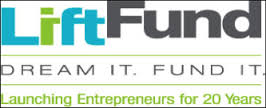 I wrote recently that starting your own business is the third best way to get wealthy, after inheritance and a lifetime of continuous savings and investment.
I wrote recently that starting your own business is the third best way to get wealthy, after inheritance and a lifetime of continuous savings and investment.
But how does one even start a business? What if you’re not ready yet?
The British actor from the TV show House, Hugh Laurie, says:
“It’s a terrible thing, I think, in life to wait until you’re ready. I have this feeling now that actually no one is ever ready to do anything. There is almost no such thing as ready. There is only now. And you may as well do it now. Generally speaking, now is as good a time as any.”
I spent a morning with a friend recently talking about the new consulting business she wants to start. Actually, we had first talked about it a year and a half earlier, but she hesitated then. So this was our second try at her launch.
“But how do I even begin?” she lamented. She felt frozen by all the things involved in starting a business that she doesn’t know yet.
To me, the answers seemed obvious, so we spent 30 minutes outlining the steps to start her consulting business. We made up some pricing. We discussed how to start a simple website. She’ll need business cards. There’s the issue of forming an LLC or just remaining a “DBA.” We talked about where her customers are likely to come from.
The next day, curious to see kind of startup resources my city has – and thinking I might be able to help my friend – I attended a session of “1 Million Cups,” a kind of entrepreneur-therapy session at Café Commerce 1

Each week at “1 Million Cups” two business owners present their ideas as well as their business questions to an audience of fellow entrepreneurs and experts. In a give-and-take session, they discuss holes in their plans, as well as possible plugs for those leaks.
If I were starting a business, or even thinking of starting a business, I’d show up Wednesday mornings for a few weeks at a program like “1 Million Cups,” just to help me get over the hump of getting going.

I’m no stranger to my friend’s dilemma, as I’ve procrastinated for years before beginning important projects. I still struggle with this, pretty much every day.
My main man John Popper from Blues Traveler sings “I think the past, the past is behind us, [it’d be] real confusing if not, but anyway,” and somehow I think that’s relevant too.
Starting a business overwhelms all of us. Smart people, like my friend, realize all the things that she doesn’t know yet about entrepreneurship, and it freezes her, which is too bad.
I’ve written before that entrepreneurship probably requires a healthy dose of ignorance, because nobody would even bother starting a business if they knew how hard it would be to succeed.
Since most new business ventures fail – the commonly quoted statistic is 80% of new businesses don’t make it past 2 years – we need to encourage and celebrate the startup risk-takers, if only to incentivize them in the face of probable failure. We need to urge them to start now.
A serial tech entrepreneur and fellow alumnus who works with current students at my high school gives a ‘hurry up and start’ message to these eighteen year-olds. If you haven’t started a business by the time you graduate from college, he says, it’s too late. College, he urges, is the perfect time to start a business, with subsidized room and board, flexible work hours, cheap intellectual talent all around you, and a fallback plan when it fails.
I wish somebody had given me that speech when I was in college. His logic for why that’s the ideal time to begin resonates with me.
Of course it’s not actually true that it’s too late, but we all know kids like to be tricked.2
Many of the present-day ‘Unicorns’ – Silicon Valley-speak for tech startups reaching a billion-dollar valuation – were founded by kids who spent their college years tinkering and hacking away at businesses. Now, founding a ‘unicorn’ isn’t a reasonable goal, but making a living through owning one’s own business is perfectly reasonable for many.

My ten year-old daughter spent two weeks this past summer at Venture Lab, a camp in San Antonio with the explicit promise of inculcating entrepreneurial skills in children. Will that work?
I don’t know for sure. She sure impressed me in presenting her business plan. She and her fellow campers went from idea to prototype to market research to marketing to investor pitch, all in one week. I hope this will lower the psychological barrier to getting started on a business in the future.
My fondest wish is that when the time comes for her to start her real business – whether at age 15, 35, or 65 – that she dives right in with confidence. Will she wait until the time is perfectly right, or until her plans are (sadly) aromatically overripe?
As for the business you’ve been thinking about for a while, how about just starting it right now?
A version of this post ran in the San Antonio Express News
Post read (2016) times.
- Disclosure: I do some consulting for LiftFund, the folks who run Café Commerce. ↩
- As Jack Handey says, “One thing kids like is to be tricked. For instance, I was going to take my nephew to Disneyland, but instead I drove him to an old burned-out warehouse. “Oh no,” I said, “Disneyland burned down.” He cried and cried, but I think that deep down he thought it was a pretty good joke. I started to drive over to the real Disneyland, but it was getting pretty late.” ↩




